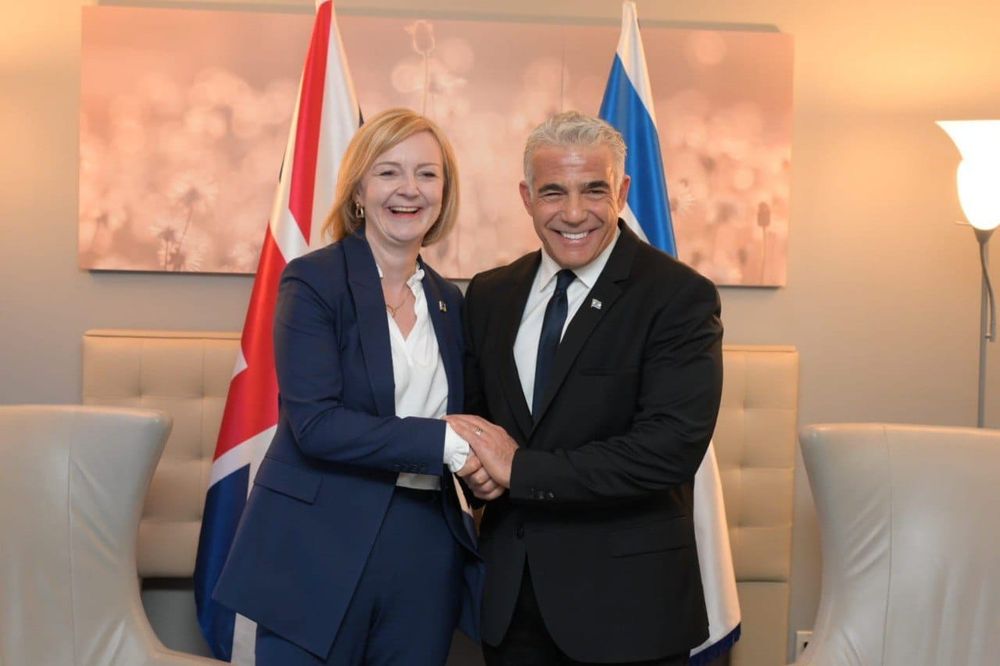Arab trade warning to Truss
Truss's move drew reactions in the Arab world. A group of ambassadors of Arab countries in London, by sending an official letter to Truss, asked her not to take any action regarding the transfer of the embassy from Tel Aviv to Al-Quds. In the letter, the details of which were published by the Guardian newspaper, the Arab diplomats said that this plan could jeopardize the negotiations on the free trade agreement between Britain and the (Persian) Gulf Cooperation Council, which is supposed to be concluded this year. The letter sent by Arab diplomats has been supported by all Arab countries, including the UAE and Bahrain which normalized their relations with the Israeli regime in 2020.
Although Arab countries have close ties with the Israeli government behind the scenes and some of them in recent years publicized their relationship with Tel Aviv under normalization deals, they think that the embassy relocation causes tensions and risks fresh war between the Israelis and the Palestinians. The members of the (Persian) Gulf Cooperation Council have had close economic relations with Britain since the end of World War II and developed them in recent years by signing military contracts to buy weapons from London. However, with the clear Arab opposition to the controversial British embassy plan, their business ties can take damage if Truss decides to press ahead with her plan.
According to the official trade data released in 2021, the total trade between Britain and the (P) GCC was estimated at £33.1 billion ($37.2 billion), of which 11 billion included trade with Saudi Arabia. Since Britain has reduced its trade relations with the Continent after the Brexit and has suffered many losses, it is trying to get rid of this critical situation by boosting trade relations with other countries, and the Arab countries of the Persian Gulf can help Britain. Britain looks at the Arab countries of the Persian Gulf as one of the most beneficial trading partners for its economy, because these countries have made many investments in Britain thanks to oil revenues, and with the signing of the free trade agreement, the amount of Arab investment will undoubtedly grow. For this reason, the Arab stance will put Liz Truss in a dilemma: appeasing the Israelis or making profits from easier trade with the Arabs. And she will have to choose which way will benefit her country's troubled economy.
Truss's appeasement for Israelis
The British service to the Israelis is not new as the two have a long history of relations and Britain is the practical establisher of the Israeli regime. During the World War I, the British Foreign Secretary Arthur James Balfour 1917 in a statement declared foundation of a Jewish state in Palestine, which was under the British mandate and during 30 years, he arranged movement of many of the world Jews to the Palestinian territories to take the credit for initiation of the world history's longest dispute. Now, like their predecessors, the British officials carry the same blood of support for the Israeli regime in their veins and do whatever they can in favor of the Israelis. The embassy relocation plan is part of this policy.
That why Truss made such decision in the current period is worth probing. There is a reality: All of the Western governments have friendly relations with the Israelis in return for the political and economic support of the powerful Zionist lobby. Truss is no exception and is eyeing to take the embassy to Al-Quds in return for supports. Having in mind that the British government after the exit from the EU has been in a shambles, it feels a need for the Zionist lobby more than any other time. The British economic crisis is not just because of Brexit consequences but also the Ukraine war that is effecting the whole Europe with energy crisis it caused. Therefore, to take the grounded national economy out of the predicament which according to the analysts will prevail for years, Truss is stretching her hands to the Zionists for help in return for good political service.
Another mentionable point of the British PM's decision is that London has been under the shadow of Washington regarding the Israeli-Palestinian conflict and took not effective action. This drives Truss to play a considerable role and get off Washington's shadow. Truss wants to revive the role that Margaret Thatcher, the former Prime Minister of Britain, assumed during the Cold War, in the current turbulent situation, and in other words, in the international arena present herself as a woman who can save Britain from the whirlwind of events to imprint her image in the country's history. Two months ago, in response to Russia's threats to use nuclear weapons in the Ukraine, Truss said in an interview that she was "ready" to push the nuclear button. Such stances by Truss show that she intends to play a big role as British PM in the international developments, particularly in West Asia and Palestine. The British leaders see for themselves a key role in the Palestinian conflict as their country founded a regime that created a lasting challenge in the region.
Moreover, as the energy crisis takes its toll in Europe, Britain seeks to engage in deeper partnership with the Israeli government to get part of its energy needs from the Israelis.
However, the Truss's controversial decision will go nowhere at
present. In addition to the opposition from the Muslim world, the
Russians are now effective actors in the Palestinian conflict as their
confrontation with the West in Ukraine is about to boil over. Moscow
will not allow the West to advance its ambitious plans on the
international stage and this policy is asserted in the new Russian
doctrine.
/129

